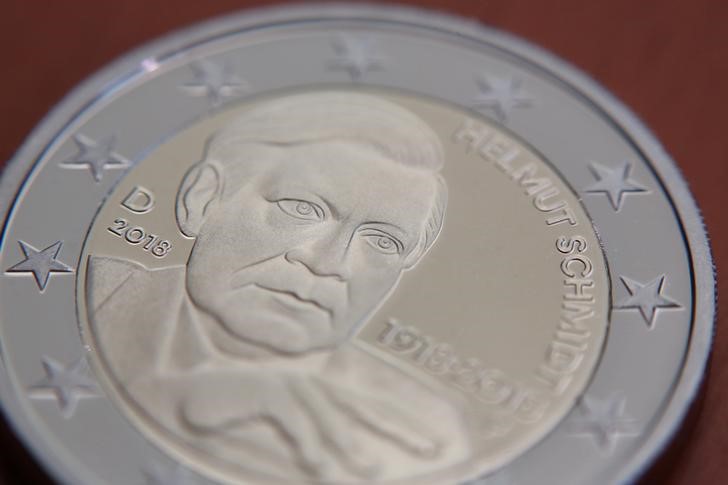By Alastair Macdonald and Francesco Guarascio
BRUSSELS (Reuters) - Italians used to love the euro. Now they are not so sure, voting for populist parties whose prospective government has spooked investors fearful that Italy might quit the monetary union.
It is a tale of a romance gone sour over two decades of monotony, as Italy's economy has stagnated since it ditched the ever-devaluing lira for the EU's newly minted common currency.
Mirroring that disenchantment, Germans who were reluctant to give up their beloved Deutschmark have seen their economy power forward since the euro was introduced in 1999 -- and they have warmed to the now 19-nation currency, as Italians have cooled.
The European Commission has been tracking support across the EU for the euro in its Eurobarometer survey since the 1990s while its Eurostat statistics agency collates economic data.
To view a graphic on How support for the euro tracks income growth, click: https://tmsnrt.rs/2LaYB5w
In 2000, with the euro a year old in bank accounts but still not in Europeans' pockets as notes and coins, fully four Italians in five -- 81 percent -- thought it a good idea while only 50 percent of Germans were in favor of sharing their rock-solid mark with a country where an espresso cost 1,000 lire.
For comparison among the three big economies which joined the euro zone, the French were somewhat middling, with two thirds of them seeing mainly benefits from giving up the franc.
Fast forward to today, and there is a dramatic turnaround, both in attitudes to the euro and the state of EU economies.
Italy's national income has grown in real terms by just 3 percent since 2000, according to Eurostat's measure of GDP at constant 2010 prices. Germans were fully 24 percent better off last year compared to 17 years earlier, the French 22 percent.
Over the same period, Italians' support for the euro has plunged, to 59 percent in the last Eurobarometer survey in November. That, however, reflected an upturn from a lows of 53 percent hit in 2012-13, at the height of the debt crises in other euro states, and again in 2016 after Greece's bankruptcy and an EU crisis over Mediterranean migrants rocked Italy.
Conversely, while French support is broadly steady, German backing for the euro has hit 80 percent, climbing steadily since its early days, when the reunited Germany's economy was for a time Europe's "sick man". That, say some critics, is because Berlin has pressured the EU to run the euro for German benefit.
The anti-establishment 5-Star movement and the League have denounced the effect of euro membership on Italy and EU limits on public borrowing but they are not calling for a referendum on "Italexit" -- two private polls on Thursday found that 60-72 percent of Italians still prefer to keep the euro.
EU officials say Italy can still benefit from the single currency but must reform its economy so that it can recover international competitiveness without having recourse to the currency devaluations on which it relied in the last century.
(Graphic by Lea Desrayaud; Writing by Alastair Macdonald; Editing by Matthew Mpoke Bigg)
